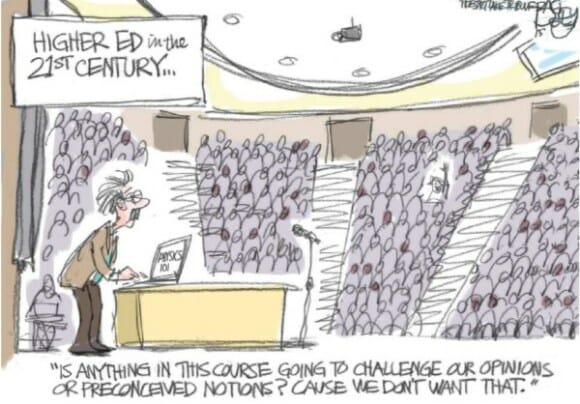LOL, Team Names & Political Correctness
A reader pointed me to this letter apparently sent to the Chicago Tribune last year in response to an editorial saying the Redskins name had to go. I can't prove it was real, but who cares at this point? It is funny:
Dear Mr. Page...
I always love your articles. and I generally agree with them. I would suggest, as in an email I received, they change the name to the "Foreskins" to better represent their community, paying tribute to the di@k heads in Congress.
Here are some other politically correctness to consider: I agree with our Native American population. I am highly insulted by the racially charged name of the Washington Redskins. One might argue that to name a professional football team after Native Americans would exalt them as fine warriors, but nay, nay. We must be careful not to offend, and in the spirit of political correctness and courtesy, we must move forward. Let's ditch the Kansas City Chiefs, the Atlanta Braves and the Cleveland Indians. If your shorts are in a wad because of the reference the name Redskins makes to skin color, then we need to get rid of the Cleveland Browns.
The Carolina Panthers obviously were named to keep the memory of militant Blacks from the 60's alive. Gone. It's offensive to us white folk.
The New York Yankees offend the Southern population. Do you see a team named for the Confederacy? No! There is no room for any reference to that tragic war that cost this country so many young men's lives.
I am also offended by the blatant references to the Catholic religion among our sports team names. Totally inappropriate to have the New Orleans Saints, the Los Angeles Angels or the San Diego Padres.
Then there are the team names that glorify criminals who raped and pillaged. We are talking about the horrible Oakland Raiders, the Minnesota Vikings, the Tampa Bay Buccaneers and the Pittsburgh Pirates!Now, let us address those teams that clearly send the wrong message to our children. The San Diego Chargers promote irresponsible fighting or even spending habits. Wrong message to our children.
The New York Giants and the San Francisco Giants promote obesity, a growing childhood epidemic. Wrong message to our children.
The Cincinnati Reds promote downers/barbiturates . Wrong message to our children.
The Milwaukee Brewers---well that goes without saying . . . Wrong message to our children.
So, there you go. We need to support any legislation that comes out to rectify this travesty, because the government will likely become involved with this issue, as they should. Just the kind of thing the do-nothing congress loves . . .As a die hard Oregon State fan, my wife and I, with all of this in mind, it might also make some sense to change the name of the Oregon State women's athletic teams to something other than "the Beavers."


